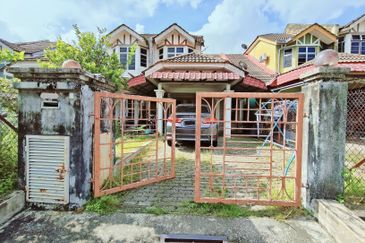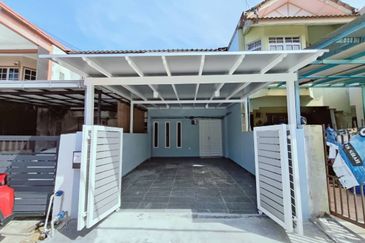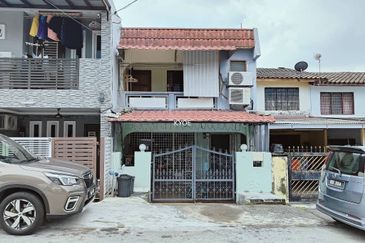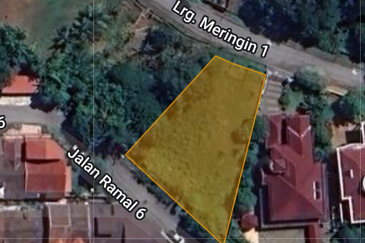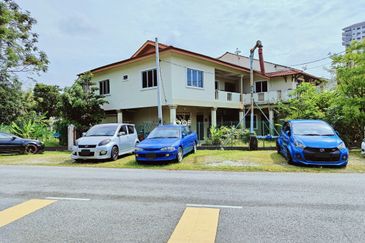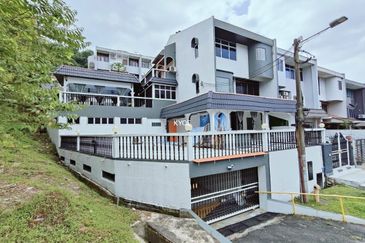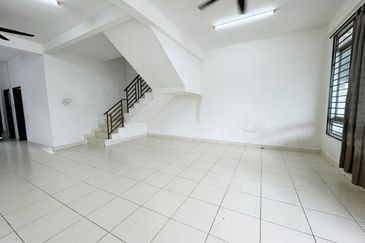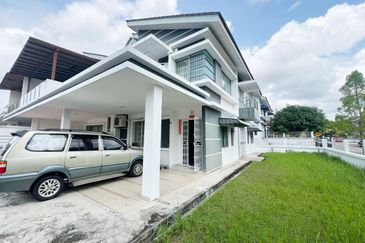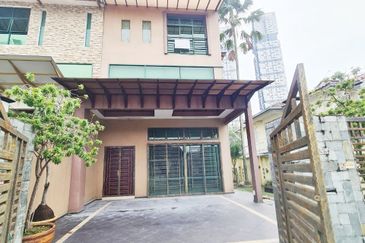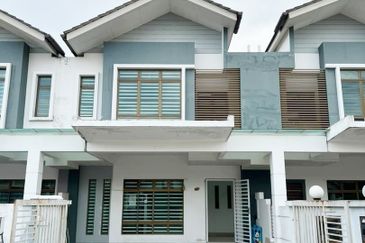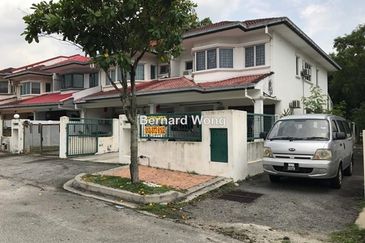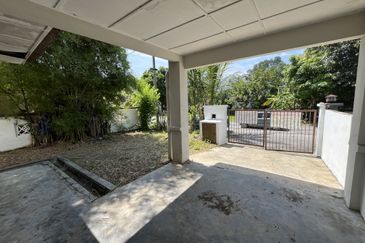HONG KONG: Hong Kong's economy has stagnated since the bursting of the property bubble in 1997. Nominal gross domestic product (GDP, that is, not adjusted for inflation) per capita has risen about 10% in a dozen years. As the Hong Kong dollar's value has fallen by one-fifth against the yuan — the currency that prices Hong Kong's living costs — stagnation would be a euphemism for describing Hong Kong's situation. Indeed, measured in the same currency, Hong Kong's standard of living has performed worse than Japan's since the Asian financial crisis.
Moreover, Hong Kong's economic performance would be considerably worse without Beijing's artificial support. Mainlanders shopping for luxuries in Hong Kong, for example, are a bright spot for its economy because of Hong Kong's zero import duty. But, without local competing industries, the mainland should abolish its import duties, too. Its high duties just serve to drive demand to Hong Kong.
The Hong Kong stock market is another growth industry. It is essentially a foreign currency board for Beijing. Shanghai could easily step in if the Qualified Foreign Institutional Investor quota was raised to US$500 billion (RM1.58 trillion). Without Beijing's generosity, it's hard to imagine where Hong Kong's economy would be today.
All Hong Kong's misery can be blamed on its obsession with property. One would imagine that a place like Hong Kong, after the 1997 crash, would have sworn off its property addiction, as has Japan, for good. The opposite is true. It seems that a Hong Kong man's latest dream is to see a gullible mainlander knocking at his door offering tens of millions of dollars for his flat, so he can live happily ever after. This dream, together with low interest rates, has powered Hong Kong's property prices to merely one-tenth below their 1997 peak.
"You can't put a price on Hong Kong property any more," one local property veteran told me. "It's like a Song dynasty vase or a Picasso. We have 1.3 billion mainlanders coming to collect them. How can you put a price tag on that?"
While there are sensational tales about mainlanders with bags of cash buying Hong Kong properties, the real reason for the city's bubble is old-fashioned debt. Hong Kong's debt has risen three times as fast as its economy in the past three years. Indeed, Hong Kong's private-sector leverage is higher than in 1997. No economy has increased leverage so soon after a major burst like Hong Kong's.
Its financial sector is engaging in totally irresponsible behaviour in fuelling the bubble. The popular mortgages linked to the Hong Kong interbank-offered rate (Hibor) charge less than 1% interest. If the rate was raised to 3%, many borrowers would get into trouble. Is such a product better than America's subprime mortgages? How does the Hong Kong government tolerate such financial products? When the bubble bursts, the Hong Kong government will be forced into propping up property prices again by restricting supply to save the financial sector. Hong Kong essentially becomes smaller after every cycle.
On the other hand, mainland cities are embracing a volume-maximising strategy. The current property bubble provides financing for local governments to maximise development. When the bubble bursts, they will let prices fall to attract new businesses.
The mainland cities just become bigger after every cycle. Guangzhou and Shenzhen will each grow to more than 20 million inhabitants. Beijing and Shanghai will be twice as big. It is hard to imagine how Hong Kong, with its population of seven million, will remain significant among the mainland's mega cities.
Hong Kong's property bubble in the 1990s was partly based on people's optimism for the future. The GDP and wages were rising at a double-digit rate in nominal terms. Property prices were rising faster. But, people could justify this by extrapolating income growth — that is, property prices were rising a few years ahead of income. By comparison, the current bubble is a farce. Wages will not rise rapidly in the next decade. Hong Kong's fundamental challenge is the competitive pressure from the north. Despite Hong Kong's stagnation and Shanghai's rapid growth in the past decade, average wages here are still 2.5 times those in the mainland's biggest city.
As I have argued before, Hong Kong's competition is no longer Shanghai, but our neighbours like Guangzhou and Shenzhen. If Hong Kong doesn't change to embrace a growth strategy, it may lose its leading position in the Cantonese-speaking world.
Hong Kong's fundamental competitive disadvantage is its high property prices. The value of its residential housing stock is probably more than four times the GDP. And that is only for half the population. The remainder live in public or subsidised housing. No other city in the world centres its economy on property like Hong Kong.
Beijing's preferential treatment for Hong Kong is largely at Shanghai's expense. But is the policy sustainable? Among all the provinces, Shanghai makes the highest net contribution to the central government coffers with just 1.6% of the population. Hong Kong, on the other hand, contributes zero. How much longer can Beijing ignore its most productive son in favour of the national slacker?
Hong Kong must balance quantity and price in its property policy to remain relevant. First, it should put an end to crazy mortgage products that will trap the government in the next downturn. The banks should be forced to make higher provisions for high-risk mortgages.
Second, the Hong Kong government should consider a property tax to replace land sales as the main source of revenue. The tax rate could start at 2% and eventually reach 5%. Such a policy would decrease incentives for the government to support land prices. Considering the rising welfare expenditure Hong Kong will need for its ageing population, such a policy may be inevitable.
Third, the government should plan an alternative and bigger business centre away from the tiny area around Victoria Harbour. Lantau Island could be such a location. Hong Kong is investing a vast sum in the Hong Kong-Macau-Zhuhai Bridge. Without an expansion strategy, it is hard to justify the cost.
Hong Kong's dream to flip property to mainland investors will probably remain a dream. With an ageing population, a tepid economy, and hooked on Beijing's favours, Hong Kong is languishing into irrelevance. It's time to wake up. — South China Morning Post
Moreover, Hong Kong's economic performance would be considerably worse without Beijing's artificial support. Mainlanders shopping for luxuries in Hong Kong, for example, are a bright spot for its economy because of Hong Kong's zero import duty. But, without local competing industries, the mainland should abolish its import duties, too. Its high duties just serve to drive demand to Hong Kong.
The Hong Kong stock market is another growth industry. It is essentially a foreign currency board for Beijing. Shanghai could easily step in if the Qualified Foreign Institutional Investor quota was raised to US$500 billion (RM1.58 trillion). Without Beijing's generosity, it's hard to imagine where Hong Kong's economy would be today.
All Hong Kong's misery can be blamed on its obsession with property. One would imagine that a place like Hong Kong, after the 1997 crash, would have sworn off its property addiction, as has Japan, for good. The opposite is true. It seems that a Hong Kong man's latest dream is to see a gullible mainlander knocking at his door offering tens of millions of dollars for his flat, so he can live happily ever after. This dream, together with low interest rates, has powered Hong Kong's property prices to merely one-tenth below their 1997 peak.
"You can't put a price on Hong Kong property any more," one local property veteran told me. "It's like a Song dynasty vase or a Picasso. We have 1.3 billion mainlanders coming to collect them. How can you put a price tag on that?"
While there are sensational tales about mainlanders with bags of cash buying Hong Kong properties, the real reason for the city's bubble is old-fashioned debt. Hong Kong's debt has risen three times as fast as its economy in the past three years. Indeed, Hong Kong's private-sector leverage is higher than in 1997. No economy has increased leverage so soon after a major burst like Hong Kong's.
Its financial sector is engaging in totally irresponsible behaviour in fuelling the bubble. The popular mortgages linked to the Hong Kong interbank-offered rate (Hibor) charge less than 1% interest. If the rate was raised to 3%, many borrowers would get into trouble. Is such a product better than America's subprime mortgages? How does the Hong Kong government tolerate such financial products? When the bubble bursts, the Hong Kong government will be forced into propping up property prices again by restricting supply to save the financial sector. Hong Kong essentially becomes smaller after every cycle.
On the other hand, mainland cities are embracing a volume-maximising strategy. The current property bubble provides financing for local governments to maximise development. When the bubble bursts, they will let prices fall to attract new businesses.
The mainland cities just become bigger after every cycle. Guangzhou and Shenzhen will each grow to more than 20 million inhabitants. Beijing and Shanghai will be twice as big. It is hard to imagine how Hong Kong, with its population of seven million, will remain significant among the mainland's mega cities.
Hong Kong's property bubble in the 1990s was partly based on people's optimism for the future. The GDP and wages were rising at a double-digit rate in nominal terms. Property prices were rising faster. But, people could justify this by extrapolating income growth — that is, property prices were rising a few years ahead of income. By comparison, the current bubble is a farce. Wages will not rise rapidly in the next decade. Hong Kong's fundamental challenge is the competitive pressure from the north. Despite Hong Kong's stagnation and Shanghai's rapid growth in the past decade, average wages here are still 2.5 times those in the mainland's biggest city.
As I have argued before, Hong Kong's competition is no longer Shanghai, but our neighbours like Guangzhou and Shenzhen. If Hong Kong doesn't change to embrace a growth strategy, it may lose its leading position in the Cantonese-speaking world.
Hong Kong's fundamental competitive disadvantage is its high property prices. The value of its residential housing stock is probably more than four times the GDP. And that is only for half the population. The remainder live in public or subsidised housing. No other city in the world centres its economy on property like Hong Kong.
Beijing's preferential treatment for Hong Kong is largely at Shanghai's expense. But is the policy sustainable? Among all the provinces, Shanghai makes the highest net contribution to the central government coffers with just 1.6% of the population. Hong Kong, on the other hand, contributes zero. How much longer can Beijing ignore its most productive son in favour of the national slacker?
Hong Kong must balance quantity and price in its property policy to remain relevant. First, it should put an end to crazy mortgage products that will trap the government in the next downturn. The banks should be forced to make higher provisions for high-risk mortgages.
Second, the Hong Kong government should consider a property tax to replace land sales as the main source of revenue. The tax rate could start at 2% and eventually reach 5%. Such a policy would decrease incentives for the government to support land prices. Considering the rising welfare expenditure Hong Kong will need for its ageing population, such a policy may be inevitable.
Third, the government should plan an alternative and bigger business centre away from the tiny area around Victoria Harbour. Lantau Island could be such a location. Hong Kong is investing a vast sum in the Hong Kong-Macau-Zhuhai Bridge. Without an expansion strategy, it is hard to justify the cost.
Hong Kong's dream to flip property to mainland investors will probably remain a dream. With an ageing population, a tepid economy, and hooked on Beijing's favours, Hong Kong is languishing into irrelevance. It's time to wake up. — South China Morning Post
SHARE
TOP PICKS BY EDGEPROP
SALE
FEATURED
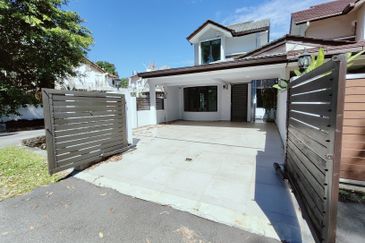
Bandar Kinrara 2
Bandar Kinrara Puchong, Selangor
RM 850,000
3 beds |
2 bath |
1500 sqft
SALE
FEATURED
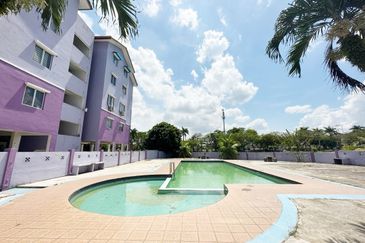
Pangsapuri Sri Ilham, Bandar Baru Seri Alam
Masai, Johor
RM 185,000
3 beds |
2 bath |
818 sqft
SALE
FEATURED

Plenitube Harp @ Taman Desa Tebrau
Johor Bahru, Johor
RM 1,300,000
4 beds |
5 bath |
2549 sqft

